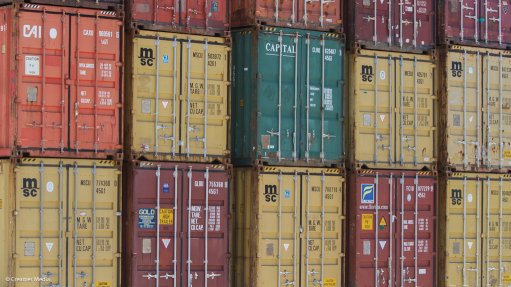
With the expiry of the Africa Growth and Opportunity Act 15 months away, South Africa is continuing to call for an early and substantial extension of the preferential trade arrangement, which has been in place since 2000.
Department of Trade, Industry and Competition chief director for bilateral trade relations Malose Letsoalo reported this week that South Africa remained optimistic that Agoa would be extended beyond its September 2025 expiry date.
Speaking during a Trade and Industrial Policy Strategies (TIPS) discussion, Letsoalo highlighted ongoing bipartisan support for Agoa in the US Congress, which could consider extending the scheme for up to 16 years to 2041 in line with a Bill put forward by Democratic Senator Chris Coons and Republican Senator James Risch.
African governments have argued that an extension of at least ten years was necessary to provide the certainty required for more countries to take fuller advantage of the unilateral scheme.
South Africa, whose Agoa status came into question last year when tensions over an alleged arms sale to Russia almost prompted an out-of-cycle review of the country’s eligibility, remains one of a handful of countries that genuinely benefits from the arrangement.
TIPS executive director Dr Saul Levin quoted joint research undertaken with the Congress of South African Trade Unions (Cosatu) showing that, while much of South Africa’s commodity exports enter the US duty-free outside of Agoa, the country’s agriculture and manufacturing exports benefitted disproportionately from the country’s eligibility.
The research shows that 75% of agriculture and 59% of manufacturing exports to the US utilise the Agoa preferences. Besides automobile exports, South Africa’s largest Agoa beneficiary by value, various agricultural and food products such as citrus, nuts, wine and even ice-cream benefit under the scheme.
Exports from South Africa under Agoa reached $3-billion for the first time in 2022, the TIPS-Cosatu research shows, and have consistently hovered at about $2-billion for much of the programme’s recent history.
In 2022, exports under Agoa made up 21% of South Africa’s exports to the US, while trade under Agoa and America’s generalised system of preferences (GSP) scheme combined made up 25% of total exports.
“This likely underestimates the true scale of Agoa/GSP usage, since 2022 featured an unusually high degree of platinum group metal exports and, on average since 2010, Agoa/GSP have made up 33% of total exports to the US.”
Levin added that, in the absence of a trade agreement, the Agoa platform also provided for ongoing trade-related engagements between South African and American firms and ongoing eligibility remained a “development imperative”.
The research also points to jobs benefits in both South Africa and the US, where the total cost of foregone tariff revenue is almost negligible.
However, director of the Nelson Mandela School of Public Governance Faizel Ismail, who was South Africa’s ambassador to the World Trade Organisation between 2010 and 2014 and who participated in the negotiations for the country’s continued eligibility in 2014 and 2015, which was threatened by an out-of-cycle review triggered largely by a dispute over poultry, stressed that access to Agoa was not “cost free”.
He highlighted the concessions made in the areas of poultry, beef and pork, as well as risks associated with out-of-cycle reviews, where various domestic trade and industrial policies could be challenged in the process.
Ismail recommended that South Africa and Africa should seek not only a long-term extension, but for Agoa’s “artificial division” between sub-Saharan Africa and North Africa to be scrapped in the interest of aligning Agoa with the framework provided by the African Continental Free Trade Area Agreement.
He also argued that the current legal framework, which he said was facilitating “attrition”, should be contested, as it was not in Africa or America’s interest to continue to allow for single-interest groups to petition for reviews that jeopardise a country’s eligibility or result in a partial withdrawal of benefits.
This was the case, he argued, with Rwanda when US exporters of second-hand clothing successfully objected to the African country’s ban, which had been implemented as part of a policy being pursued to build a domestic apparel sector.
These issues, along with calls for a change to the rules of origin to align Agoa with Africa’s aspirations to build regional value chains, were likely to feature at the upcoming Agoa Forum in July.
Letsoalo said that while some had suggested that a formal extension could be announced at the forum, he anticipated that it would take place later, with South Africa keen for finality on the extension during 2024.